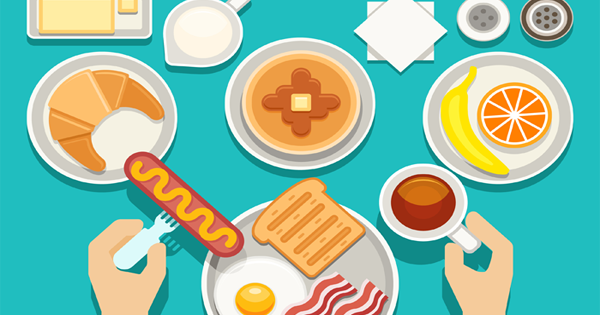The London-based health campaign group, Action on Sugar, recently investigated the nutritional content of many common English breakfasts. What did they discover?
Breakfasts that are often advertised as being “healthy” aren’t actually that healthy at all.
A person should consume only 90 grams of sugar a day. Only 25 grams of this sugar should be “free sugar,” sugar that is added into your diet in the form of sugar, syrup, honey, or other juices. The remaining 70 grams of sugar should be “intrinsic” sugar, or sugar that’s found naturally in milk (lactose) or whole fruit.
Not only should a breakfast meal contain a limited amount of sugar, but it should also contain low amounts of saturated fat. Breakfast should, rather, consist of high amounts of protein and fiber to keep you full for longer, and shouldn’t have more than 400 calories.
Action on Sugar used these criteria to assess the sugar, saturated fat, protein, and sodium content of 29 breakfast options and ranked them accordingly. Here are some of the study’s large takeaways:
Cereals and “breakfast” bars:
These products more often than not contain far too much “free sugar” in each serving to make their potential health benefits (for example, part of your recommended daily amounts of iron or other vitamins) worthwhile. Furthermore, these products also don’t contain much fiber, which means you won’t stay full for very long.

Pastries and other baked goods:
Bagels, muffins, and croissants are not considered fulfilling breakfasts because of their sugar, sodium, and saturated fat contents. While a smoked salmon and cream cheese bagel may be low in sugar and act as a good source of protein, the saturated fat and sodium contents offset these benefits. Certain baked goods may be advertised as being “low fat,” but they still contain a high number of calories and more sugar than you should consume in one meal.
Eggs:
Eggs, cooked in a way that uses limited amounts of saturated fat (for instance, using olive oil instead of butter to scramble eggs), can help you start your day off right by providing you with a good source of protein. Pair your eggs with whole grain toast for a fiber boost.
Yogurt and granola:
Some yogurts can be beneficial to your health and serve as a good breakfast because of their high calcium content. Unfortunately, many yogurt products also contain a large amount of hidden “free sugar,” which is why Action on Sugar didn’t rate this breakfast option very well.

Toast with toppings:
The nutritional content of this breakfast pairing really depends on the type of bread you use and the toppings you add. For example, white bread and fruit jam contain high amounts of sugar and lack protein and fiber that can fuel your body. Avocado on toast, however, contains a significant amount of your recommended daily intakes of fiber and vitamin E.
Fruit or fruit smoothies:
Because fruit contains “intrinsic,” or naturally occurring sugar, these breakfasts aren’t considered too bad for your health, particularly since fruit also provides you with some of your daily dose of fiber. However, do be cautious about how much fruit you eat during breakfast – you should still only consume 90 grams of sugar a day, natural or artificial.





